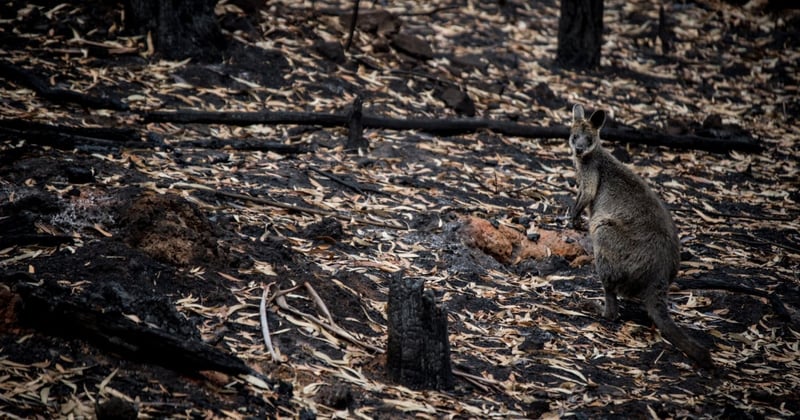
New bushfires report calls for improved disaster preparedness
News
You helped us work with Macquarie University to assess Australia’s existing framework for disaster risk response, the existing principles and laws for animals in emergencies.
Image thanks to Jo-Anne McArthur / We Animals Media
The Animals in Disasters report provides an assessment of the adequacy of current principles and plans and includes recommendations for future improvements.
As part of our long-term response to the bushfires, World Animal Protection commissioned Macquarie University to investigate uptake and application of the 2014 National Planning Principles for Animals in Disasters (NPPAD).
World Animal Protection led the National Advisory Committee for Animals in Emergencies which developed the Principles that were designed as a non-prescriptive tool aimed at promoting best practice for integrating animals into disaster planning. Specifically, we wanted to assess awareness of the Principles, their incorporation and integration into planning, and views about their currency and the extent to which they still reflect best practice.
A key driver of development of the Principles and the involvement of the emergency management community is that the human-animal bond means people sometimes put themselves in danger during disasters. That was a key finding of the royal commission into Black Saturday in Victoria. While animals are important in their own right and deserve to be protected, protecting animals through better planning means we are also protecting communities.
Macquarie University found that among key stakeholders responsible for disaster planning and emergency response just over half were aware of the NPPAD and around a third were unaware. The remainder were unsure. Of those stakeholders aware of the NPPAD, just over half reported that their organisation had implemented the Principles.
The report made sixteen recommendations that included ways in which awareness and use of the Principles for disaster planning could be increased, and other recommendations for how disaster planning, and plans, could be improved to the benefit of animals. It also called for the Federal Government to update the principles.
Head of Campaigns at World Animal Protection, Ben Pearson said:
“Most importantly, we hope that the Federal Government leads a process to update the Principles, incorporating not only these recommendations, but other learnings and experience since the Principles were finalised, so that they enable best practice for animals.”
Animals are often the forgotten victims in disasters and, with three billion animals killed, injured or displaced in the devastating 2019/20 Australian bushfires, we knew we needed to respond and help make sure that communities, governments, and animal carers were better prepared if such a disaster struck again.
Proper planning and preparedness are key to ensuring that animals are protected to the best extent possible. This report will help strengthen planning and preparation, so that animals are best looked after when disasters strike.
Thanks to you, our work to support the long-term recovery from the devastating bushfires continues.
Proper planning and preparedness are key to ensuring that animals are protected to the best extent possible.